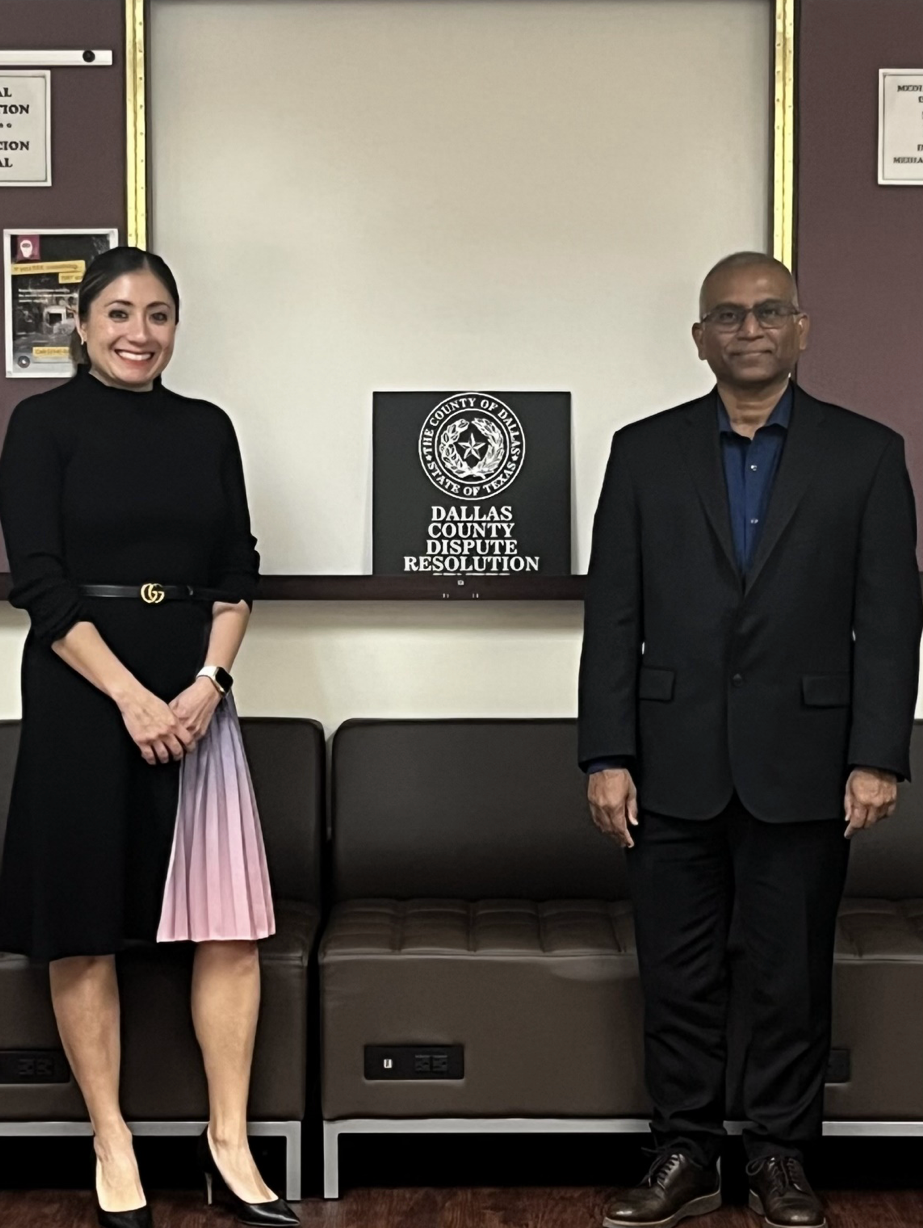By Vanessa Rosa-Kubik
•
October 22, 2024
Well, I did it. I became a mediator. Was this on my bingo card? Nope, but I will tell you how we got here. As many of you are aware, I started as a baby lawyer at a reputable, downtown Dallas firm with a magnificent view of Reunion Tower. My mentor/supervising partner was the gold standard of mentors—he was patient, kind, and ALWAYS ensured I had every opportunity to succeed. I took countless depositions, argued several hearings, and drumroll … attended more mediations than I thought possible. Some mediators were great, but most seemed apathetic toward my clients’ plight or otherwise put forth minimal effort toward earning that hefty mediation fee. Some—many of whom were highly sought mediators—were unprepared and did not bother to read my pre-mediation statement or otherwise attempt to research the complex legal arguments in advance of mediation. As I moved on to a different firm to transition into more complex commercial litigation matters, my experience with several top Dallas mediators did not improve my perceptions. I, along with my best friend from law school, eventually joined my husband’s law firm. (This is a wild story for another time, and perhaps another blog post). As the firm’s sole litigation attorney, I still could not find a mediator with the following qualities: (1) reasonably priced*, (2) attorney-mediator, (3) prepared prior to mediation, (4) puts forth at least 80% effort (yes, this should be 100%, but desperation lowered my standards), (5) great listener and room reader, and (6) problem solver. Shockingly, one Austin mediator impassed our case quickly so that he could attend a happy hour with his girlfriend. Not a good look, and no, we were not invited to happy hour. Eleven years into my legal career, my frustrations with mediators culminated after one night that involved a punk rock cover band, a few margaritas, and top-notch Mexican food (the winning recipe for epiphanies) in which I, in a conversation that had nothing to do with mediation, blurted the words out loud to my husband: “WHY NOT ME?” Six months later, I obtained my Basic, Family Law, and CPS mediation certificates. Since obtaining my mediation certificates, I have volunteered with different dispute resolution programs in four different counties and am a Full Member of the Texas Association of Mediators (at least 100 hours of mediation time as a mediator is required). I have mediated everything from personal injury matters, employment law issues, professional liability claims, commercial real estate disputes, insurance law matters, complex commercial matters, landlord/tenant issues, small claims disputes, debt collection cases, divorces with children, divorces without children, SAPCRs, child support modifications, and CPS cases. Have I made mistakes as a mediator? Absolutely. Have I learned from them? Definitely. But, am I better than those whose names I scratched off on my long list of mediators? Without question. As many of my colleagues will tell you, I am HONEST, and I LISTEN. I will tell you if your argument isn’t passing my smell test; I will tell you if I think a certain judge might take issue with your position; I will tell you if I think the client in the other room appears to be credible; and I am pretty darn great at reading a room. These skills came from a successful career as an attorney trained by some of the best attorneys and best humans I know. And listening skills and problem solving—those are just inherent as a working Mom. I suspect I am not the only attorney who became bored with the practice of law. Mediating cases has done the impossible: It has reinvigorated my interest in the law, all while trying to balance life as mother with young children. I enjoy preparing for mediations and conducting my own legal research into the claims/issues, and I see glimmers of the young, inquisitive little Vanessa who wanted to learn, understand people, and connect with the world. I am exactly where I am supposed to be. My law career has given me every tool I need to be one of your go-to mediators. If you are looking for someone to put forth every effort into your mediation, let’s work together. If not, perhaps we need a night involving a pop punk cover band, margaritas, and Mexican food to convince you of my skills—the perfect recipe for epiphanies. Thanks for reading, Vanessa *There are excellent attorney-mediators in DFW area, however, the ones I have encountered are often too overpriced for my small business clients or are booked for months in advance. ***Disclaimer: This blog post does not and is not intended to constitute legal advice.



